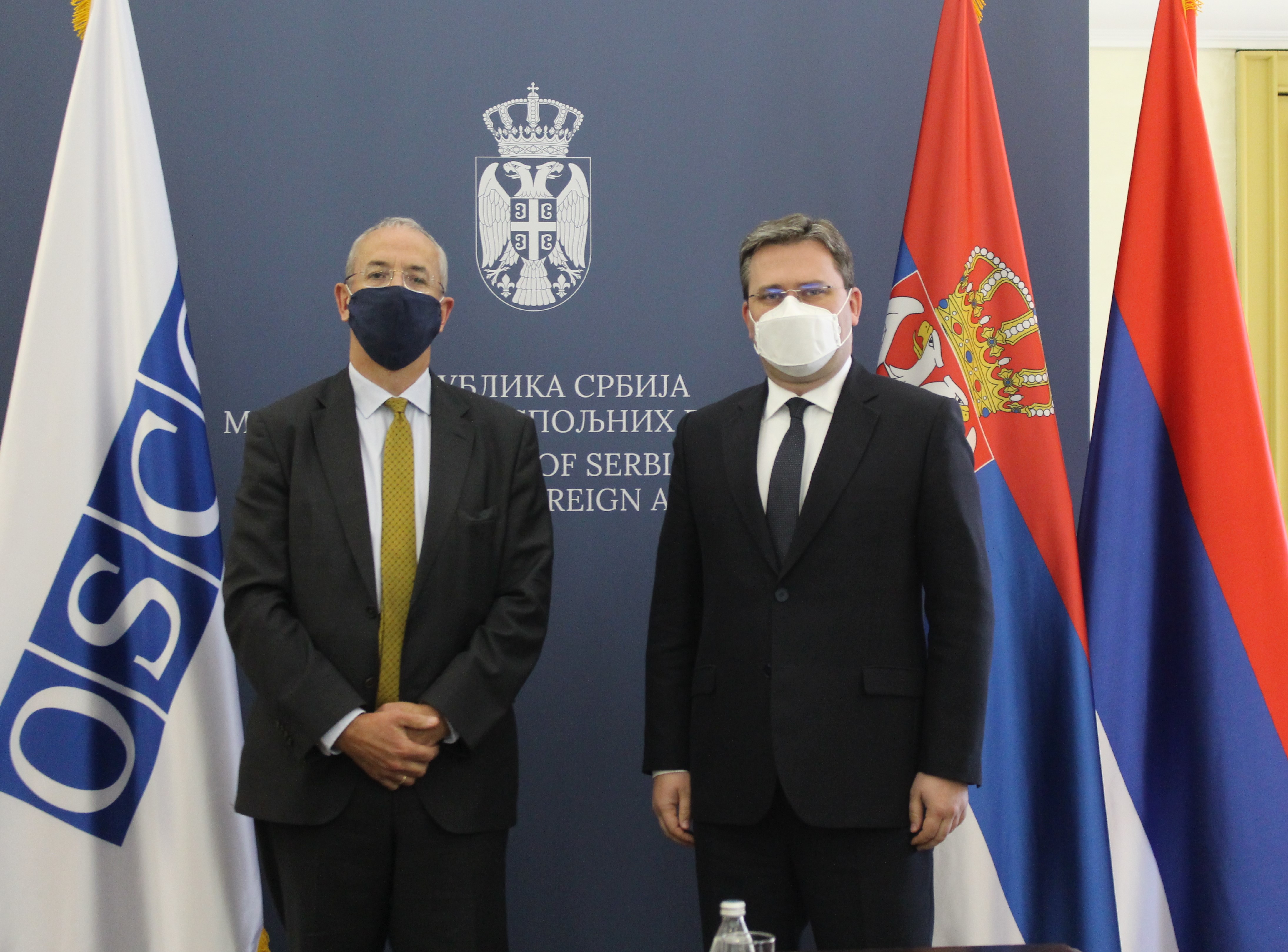Good and open communication with the OSCE Mission in Kosovo and Metohija
Selakovic congratulated Davenport on his appointment and expressed the expectation that the practice of good and open communication would continue, as well as regular meetings in Belgrade.
In the talks, the Serbian Foreign Minister stressed that Serbia supported the work of the Mission, which acted in accordance with the mandate based on UN Security Council Resolution 1244. He underlined that it was crucial for our country that the OSCE maintained a comprehensive status-neutral approach concerning Kosovo and Metohija and underlined in particular that this did not only refer to the work of field missions, but also to the modalities of organizing OSCE meetings and visits of OSCE officials to Pristina.
When it comes to the dialogue between Belgrade and Pristina, the Minister emphasized Belgrade's commitment to dialogue and the search for a compromise solution, at the same time pointing out that Belgrade had fulfilled its obligations from the Brussels Agreement, but that, on the other hand, the Community of Serb Municipalities had not been created even eight years after reaching the agreement. Selakovic stated that it was necessary for Pristina to start implementing all agreements and that periods of political instability in Pristina should not by any means be used as an excuse for their continuous refusal to implement the agreements reached. He emphasized that our side was ready to continue the dialogue and talks on numerous issues, such as internally displaced persons, missing persons, property and the status of cultural heritage.
As a very important aspect of the work of the Mission, Selakovic noted the previous activities in the field of protection of the rights of communities in Kosovo and Metohija and the conduct of elections in the north of Kosovo and Metohija. Discussing the work of the Mission, the Minister pointed out that the Human Rights and Communities Programme was of special importance for Serbia, bearing in mind that it monitored the respect for human rights, community rights and democratic standards, with special attention being paid to the rights of non-Albanian communities, displaced persons, returnees and other vulnerable groups.
Minister Selakovic pointed out that Kosovo and Metohija, with only 1.9 percent of returnees, was a post-conflict area with the lowest rate of return in the world. He also pointed out that around 42,000 years-long court cases were in progress in Kosovo and Metohija related to the usurped private property of Serbs.
Selakovic also informed his interlocutor about the situation and position of the Serb population in Kosovo and Metohija and the increasingly frequent attacks of Albanians on Serbs, their property, as well as on churches and monasteries.
The Serbian Foreign Minister said that it was extremely important to shed light on the fate of 17 journalists gone missing and killed in Kosovo and Metohija, pointing out that it was a devastating fact that none of these cases were under investigation in Kosovo and Metohija, nor were any of the perpetrators punished.

